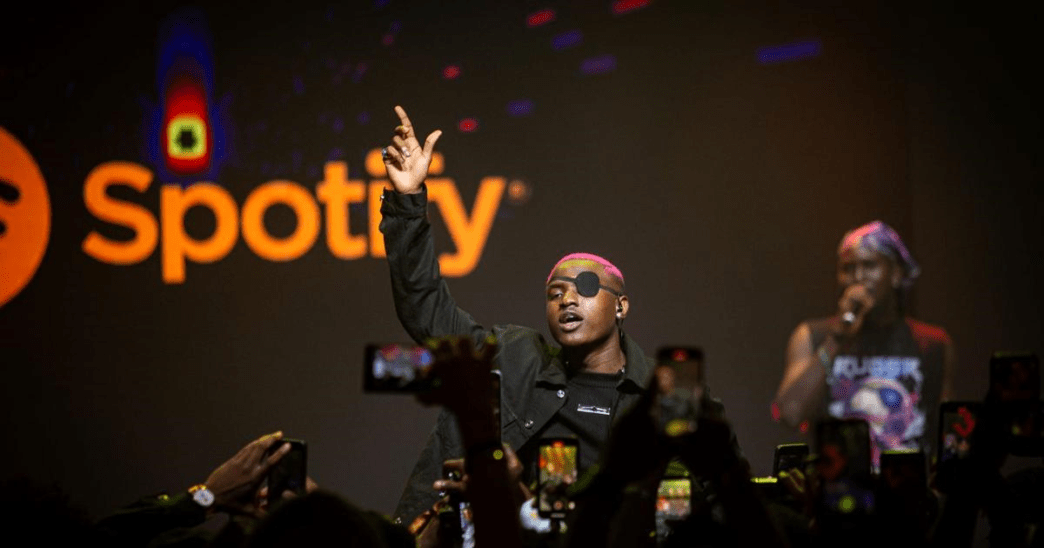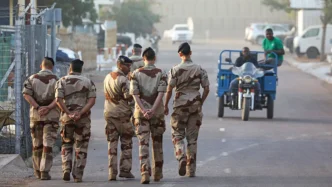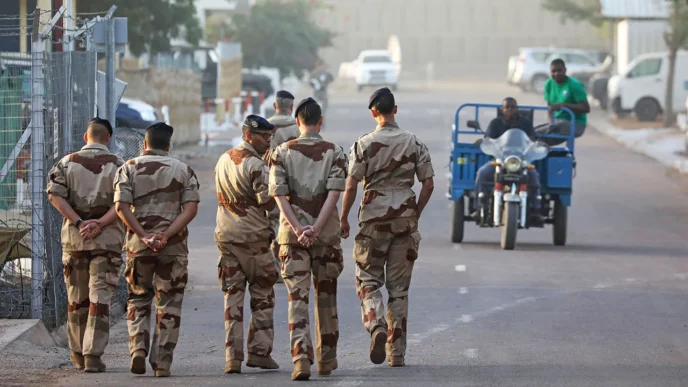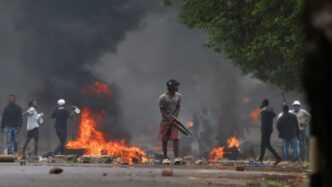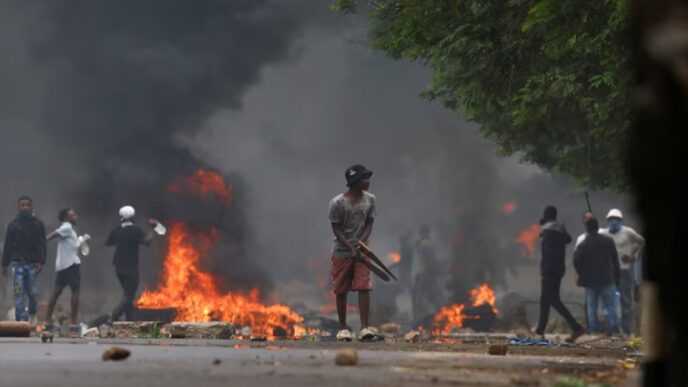The Impact of Economic Woes on Nigeria’s Detty December Celebrations
As the festive season unfolds, the once vibrant “Detty December” tradition in Nigeria has been overshadowed by economic hardships.
This beloved monthlong extravaganza, celebrated with concerts, carnivals, and gatherings, now faces a reality check as inflation and high costs strain many Nigerians.
Nigeria’s Economic Challenges Dampen Festive Spirit
For Lagos resident Fade Bey, a public relations consultant, December was typically a time for socializing at bars, concerts, and restaurants. However, this year, her celebrations have become low-key.
“I love eating out and buying gifts for loved ones, but the economy has changed everything,” Bey shared. “I’ve decided to skip gift exchanges to avoid feeling indebted.”
Like Bey, many Nigerians are cutting back on holiday festivities due to the nation’s soaring inflation rate of 34.5%, the highest in three decades. The economic strain has left millions struggling to afford basic necessities, with a minimum wage of just 70,000 naira ($45.30) per month.
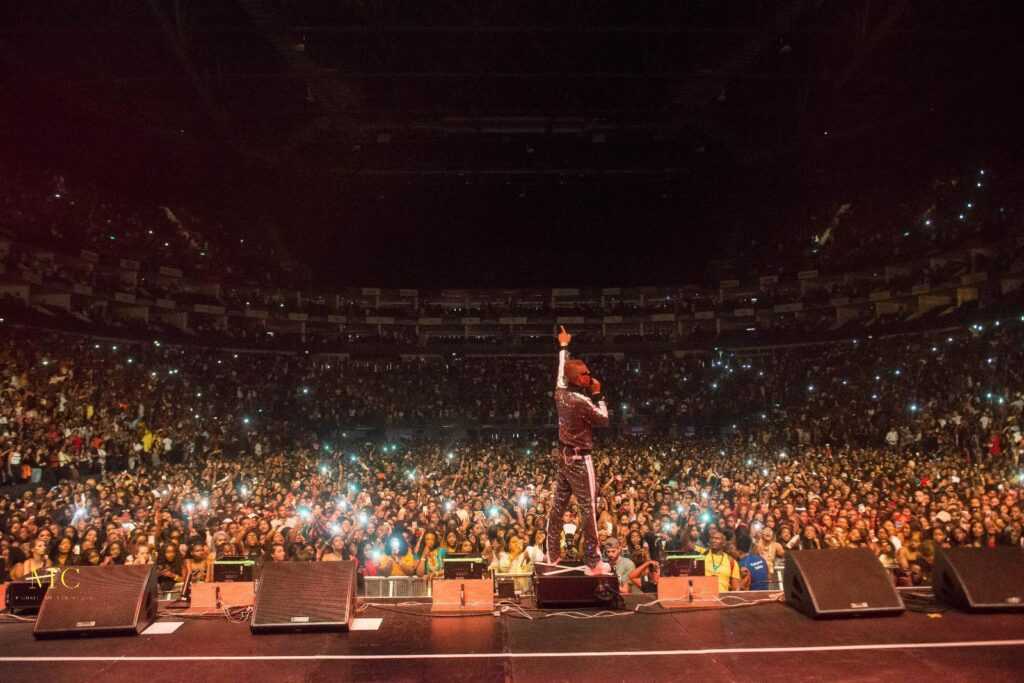
Rising Costs and Reduced Spending Power
Dining out, a common December indulgence, has become increasingly expensive. The cost of cooking a pot of jollof rice, a staple dish, rose to 21,300 naira ($13.75) in December from 20,274 naira ($13.09) in June, according to intelligence firm SBM. Two-thirds of Nigerian families now face hunger, reports the National Bureau of Statistics.
“The excitement that used to define this period has been drained by the rising costs,” said Adewunmi Emoruwa, lead strategist at Abuja-based Gatefield. “It’s a stark reminder of how inflation is reshaping Nigeria’s cultural traditions.”
The Decline of ‘Detty December’ Culture
Since its popularization in 2016 by Nigerian artist Mr Eazi, “Detty December” has been synonymous with Afrobeats concerts, parties, and vibrant social scenes. This year, however, the festivities have scaled down.
Lagos, the entertainment hub of Nigeria, typically bustles with events and packed venues during December. Yet, the economic downturn has left restaurants and clubs less crowded.
“There’s been a noticeable reduction in major concerts by top artists like Burna Boy and Wizkid,” explained OluwaMayowa Idowu, a cultural expert based in Lagos. This shift underscores the impact of dwindling purchasing power on entertainment.
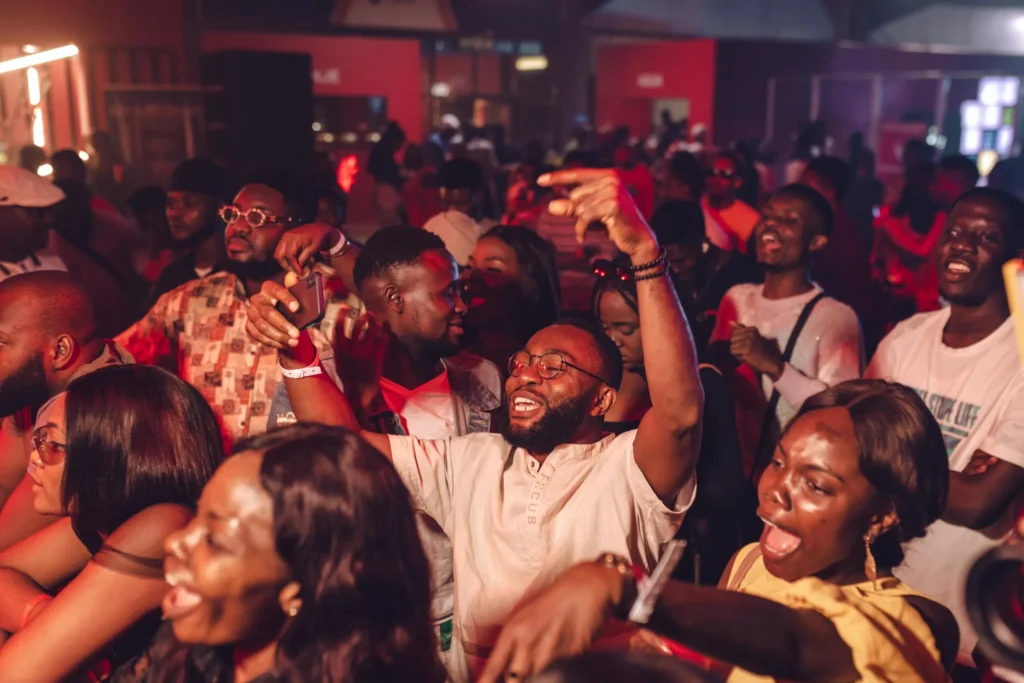
Diaspora Nigerians Face Inflation Shock
Diasporans, colloquially known as IJGBs (“I Just Got Backs”), traditionally return to Nigeria in December to reconnect with their roots. Valerie Eguavoen, a 33-year-old Nigerian based abroad, planned her trip home months in advance, bringing along African American friends. Despite their dollar advantage, they were surprised by the “December tax” on goods and services.
“Meals and clothing costs are shocking,” Eguavoen remarked. “The downturn of Nigeria’s economy is glaring. Still, we’ve balanced partying with visits to historical sites and local markets.”
Broader Implications for Nigeria and Ghana
While IJGB spending injects liquidity into Nigeria’s economy, experts caution that it could inadvertently worsen inflation. “More money chasing limited goods raises prices, compounding challenges for locals,” said Emoruwa.
Similar dynamics are evident in Ghana, where the Year of Return program attracts diasporans. Though beneficial to tourism, it has led to soaring costs, further burdening economically distressed locals.
Sedinam Baku, a public health worker in Ghana, shared her experience: “Cocktail prices have doubled, and I’ve had to limit outings to one concert and one dinner this December.”
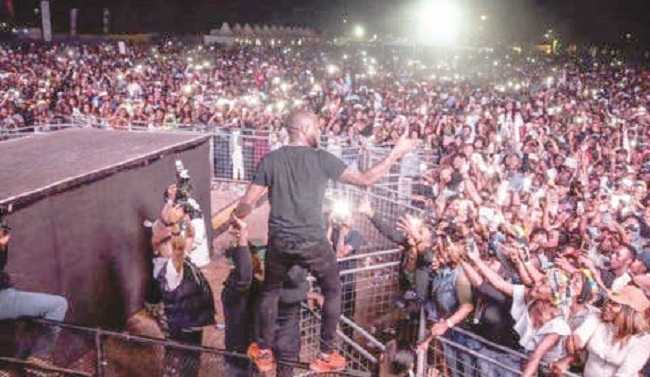
A Sobering December for Many
The economic crisis has widened the gap between Nigeria’s elite and the urban poor. Adesuwa Giwa-Osagie, a historian, described the situation as dire. “December used to be a time of giving, but now fewer people can afford to help,” she said.
For Nigerians like Bey, even a 10% salary raise feels insufficient amid escalating costs. “I’m unsure if earning more next year will make a difference,” she admitted. “Inflation has me feeling trapped.”
As Nigeria’s economy continues to challenge its people, this year’s muted “Detty December” reflects a broader struggle to maintain traditions in the face of adversity. Can Nigeria reclaim its festive spirit in the coming years, or will these challenges redefine the holiday season for good?
Read More:

